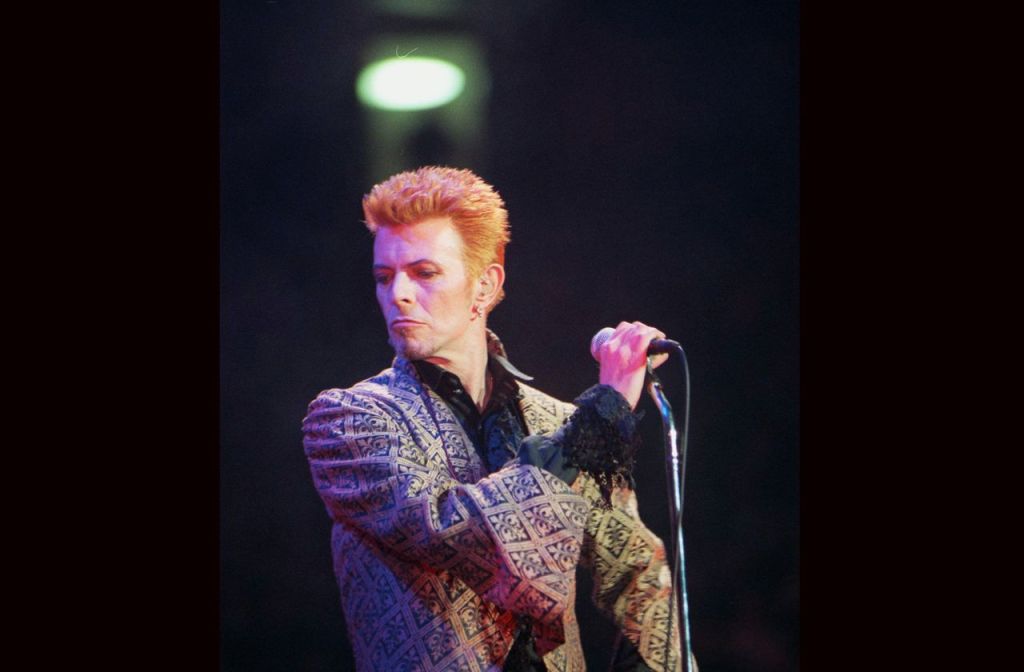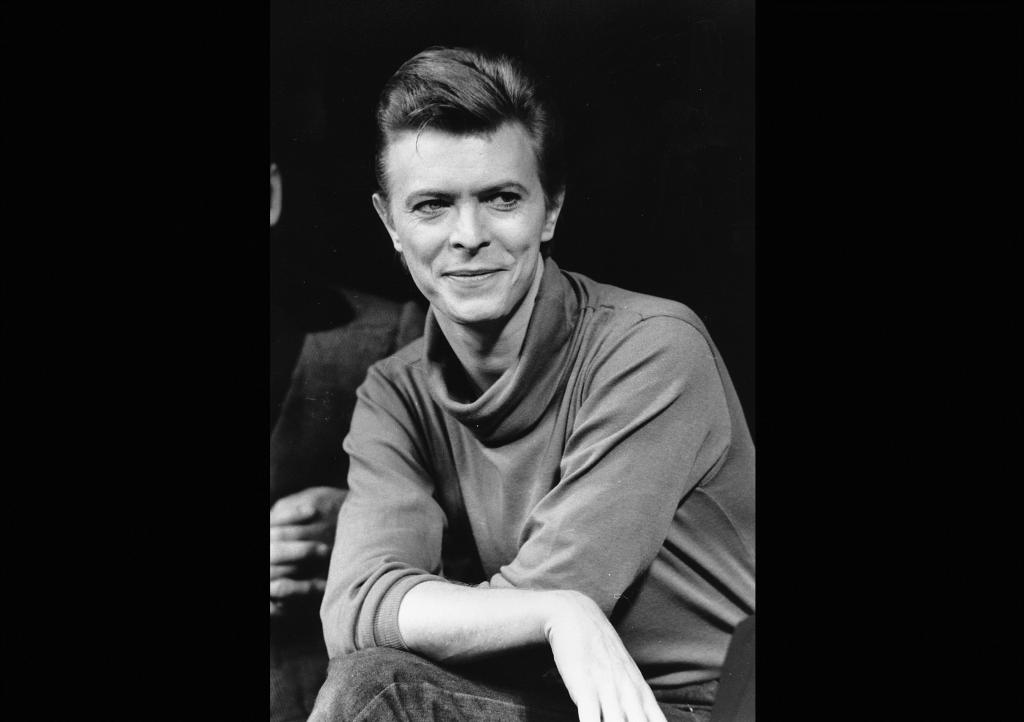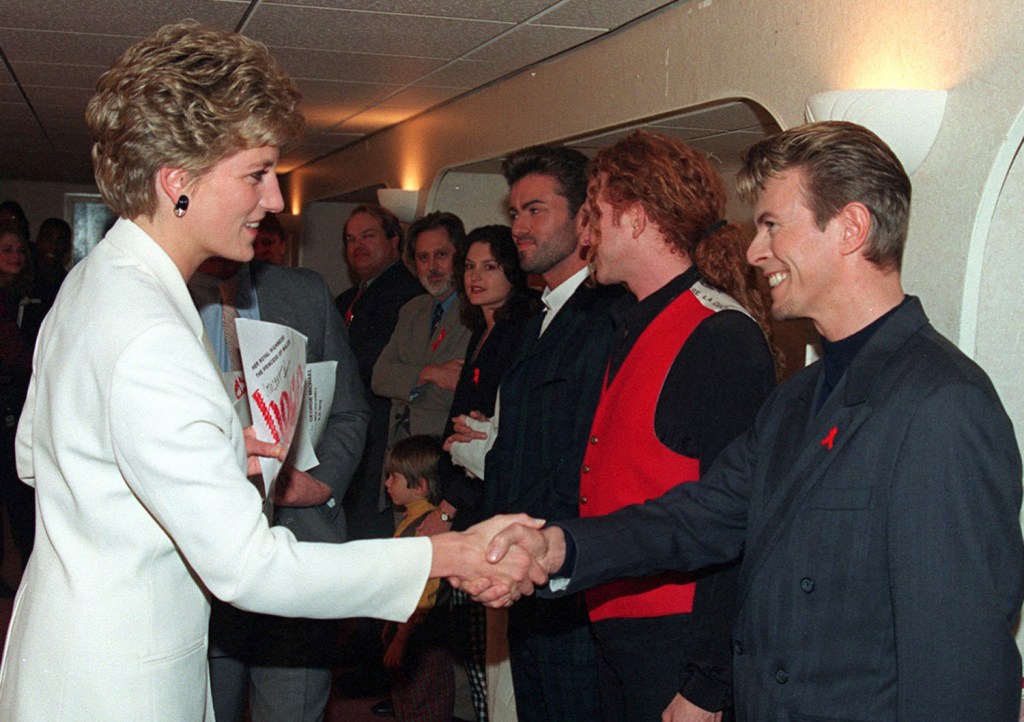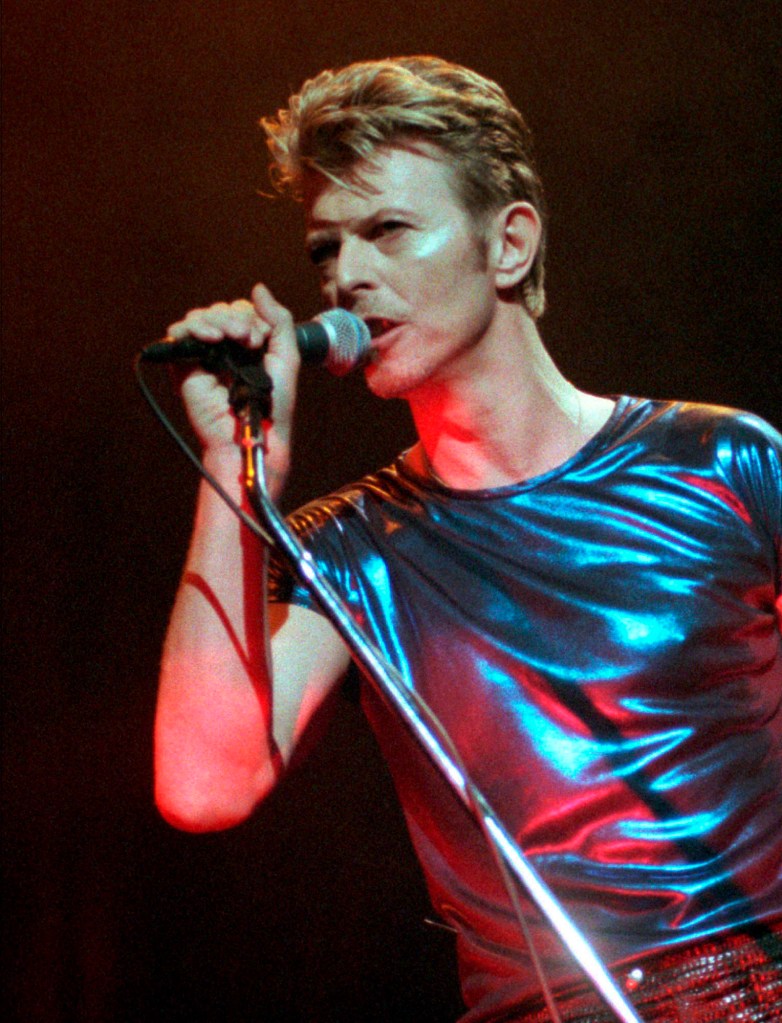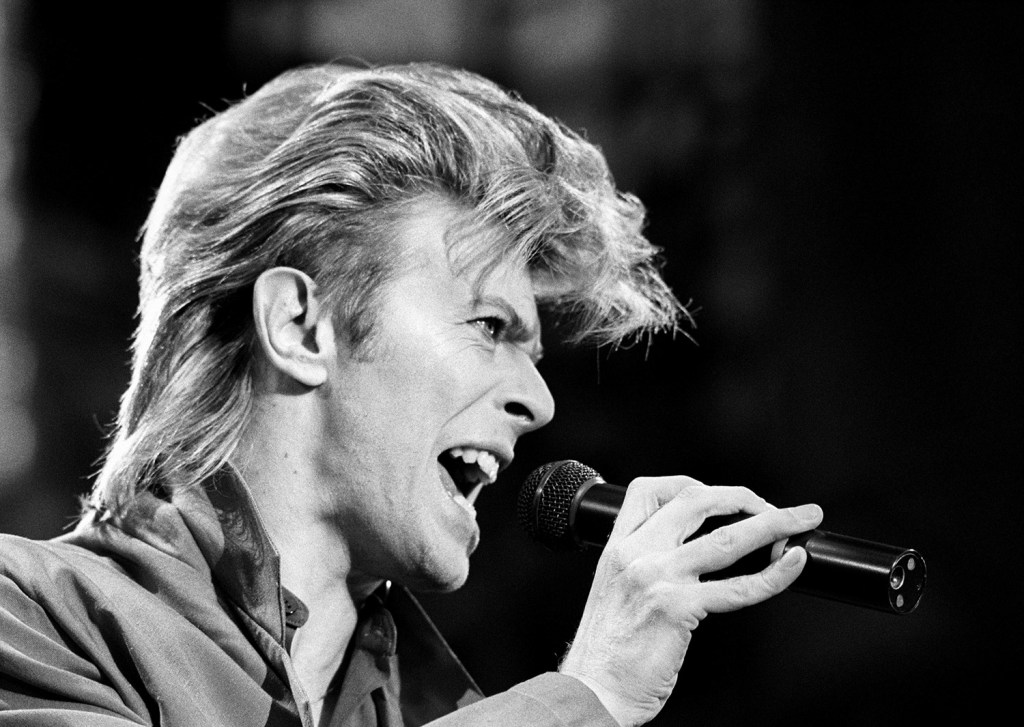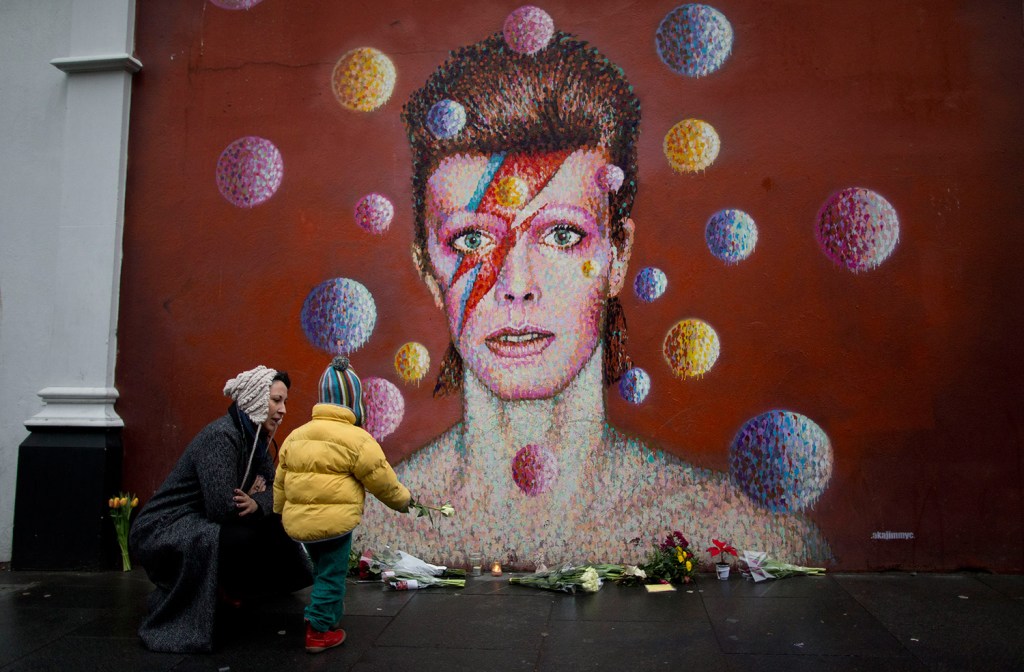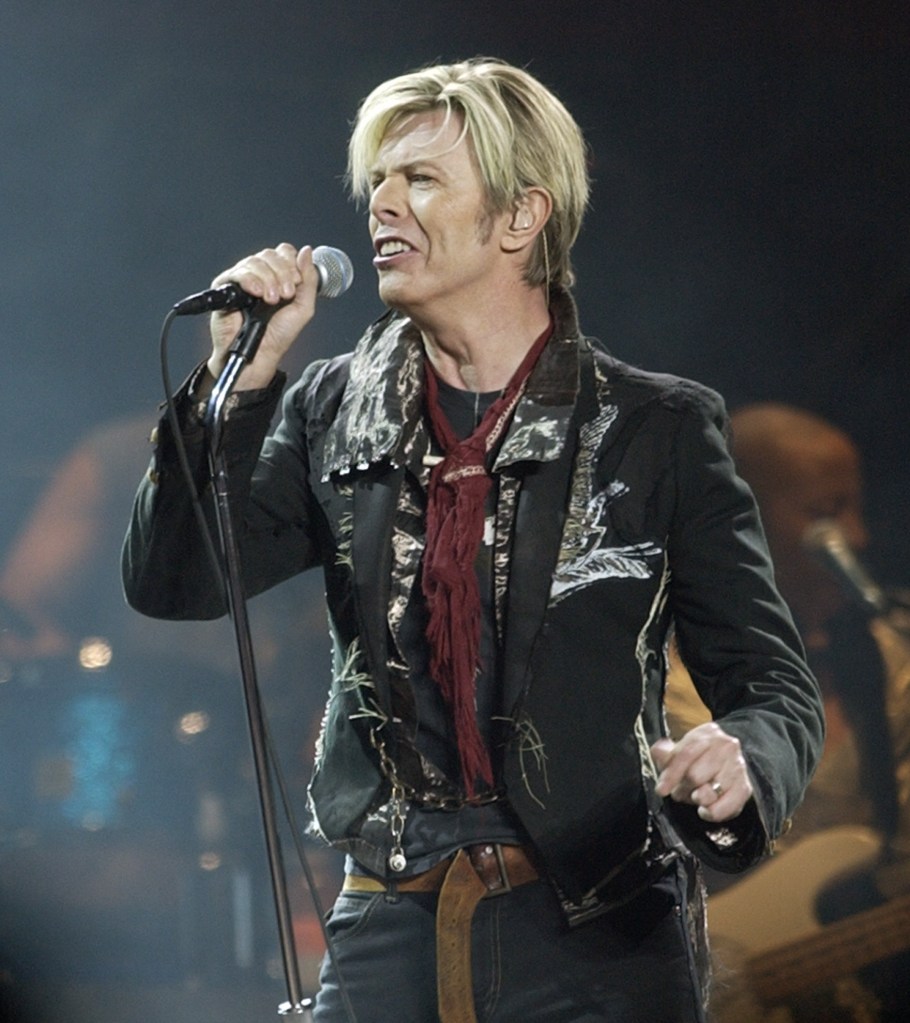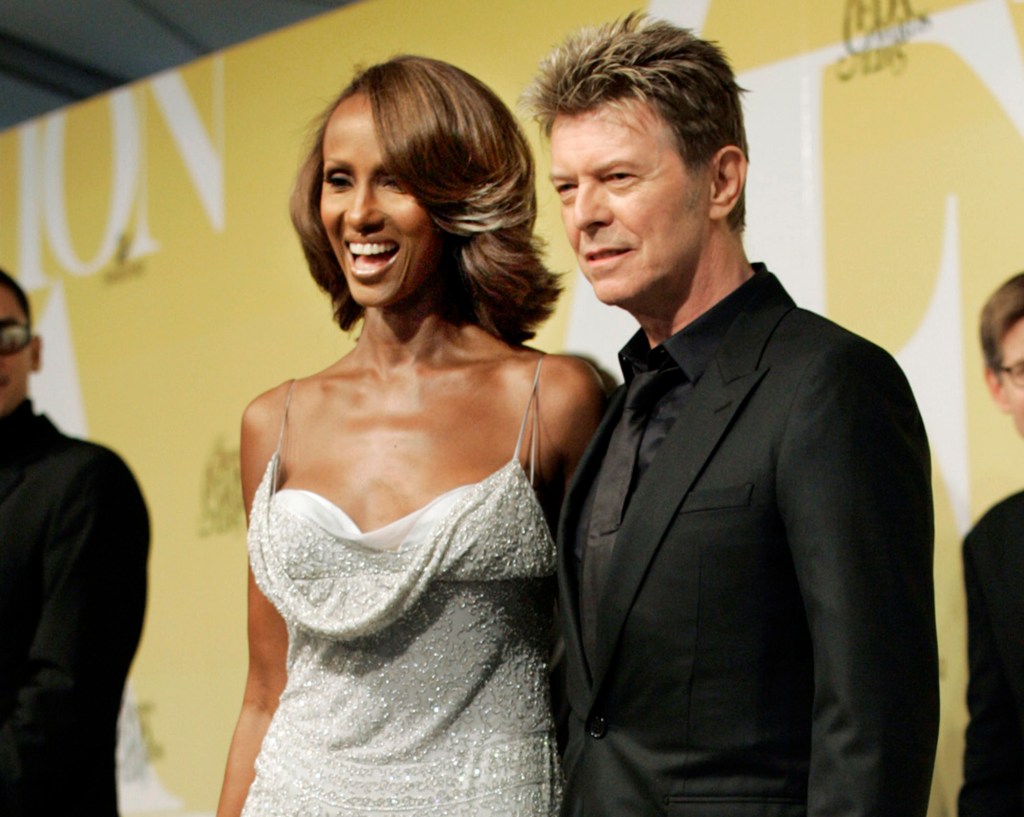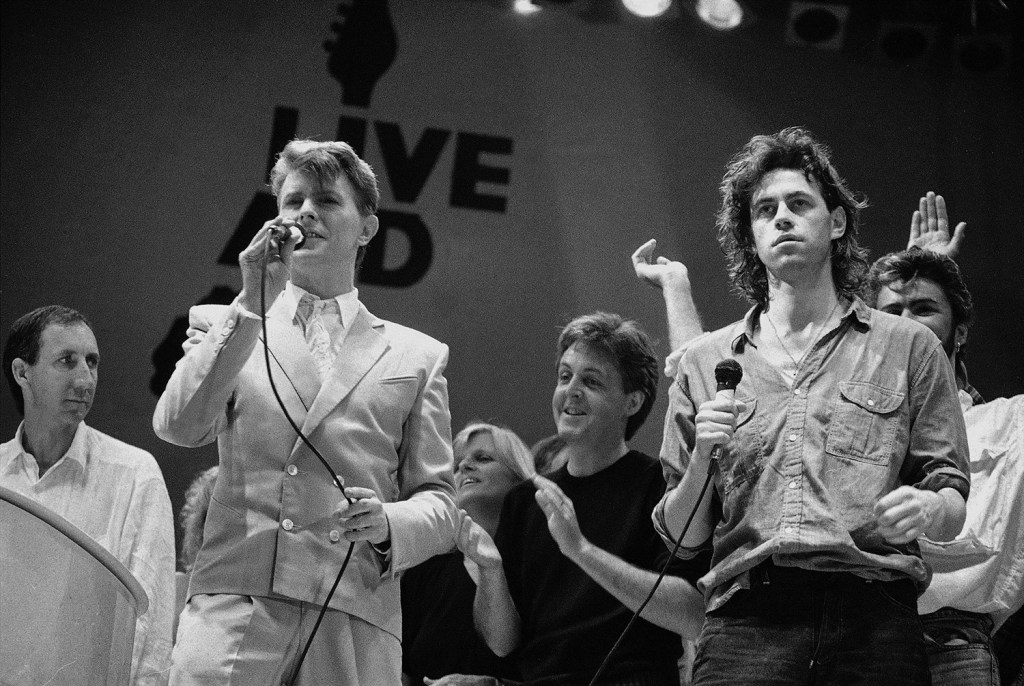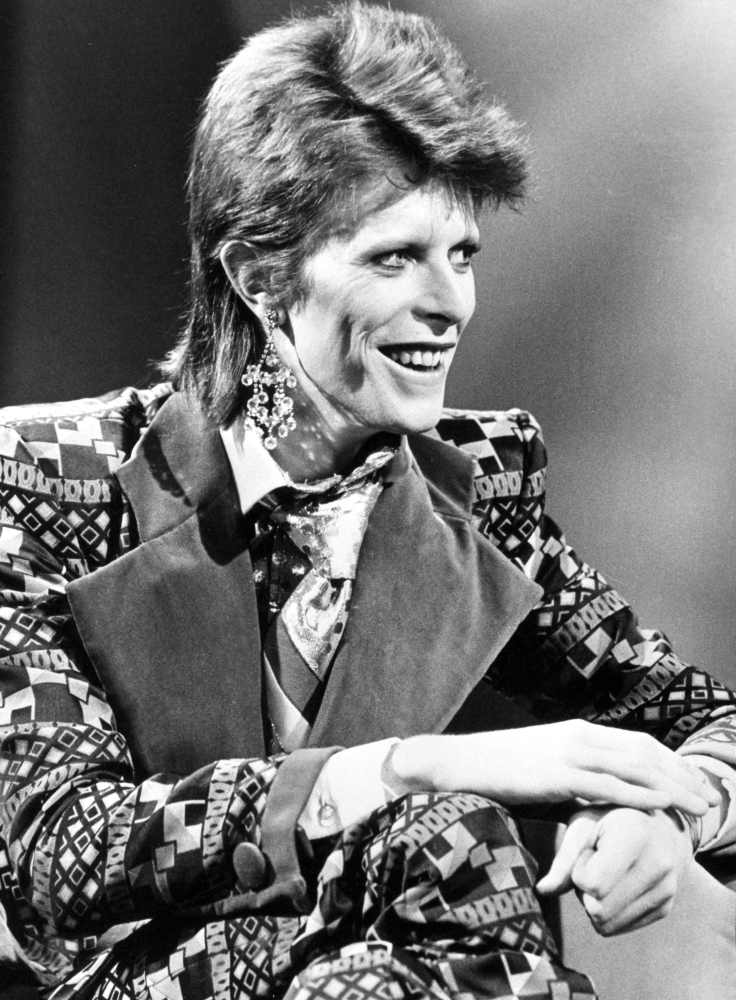NEW YORK – David Bowie made clear, in a way that was exhilarating and sometimes frightening, what every rock star since Elvis Presley and Little Richard had been telling us all along – that anything was possible.
With his unpredictable range of styles, his melding of European jadedness with American rhythms and his ever-changing personas and wardrobes, the gaunt and erudite Bowie brought an open theatricality and androgyny to popular music that changed the very meaning of being a rock star.
From album to album, and concert to concert, fans were never sure how he would look – in black leather and a pompadour; in makeup and orange hair as his alter ego Ziggy Stardust; shirtless and wearing a Mohawk; or elegant and debauched in a dark vest and white shirt, cigarette dangling from his mouth, taking in the uncertainty of modern life.
“My entire career, I’ve only really worked with the same subject matter,” Bowie, whose death was announced early Monday, told The Associated Press in a 2002 interview. “The trousers may change, but the actual words and subjects I’ve always chosen to write with are things to do with isolation, abandonment, fear and anxiety – all of the high points of one’s life.”
Representative Steve Martin said that Bowie died “peacefully” surrounded by family after battling cancer for 18 months.
“While many of you will share in this loss, we ask that you respect the family’s privacy during their time of grief,” the statement read. No more details were provided.
Bowie turned 69 on Friday, the same day he released a new album called “Blackstar.” He also released a music video on Friday for the song “Lazarus,” which showed him frail and lying in bed, eyes bandaged. The song begins with the line: “Look up here, I’m in heaven.”
To millions of fans, his appeal was on all levels – visually, intellectually, sonically. He was as likely to quote Friedrich Nietzsche as he was to refer to an old pop song. He was a writer, a musician and producer. He was also one of the first rock stars to receive serious critical attention as a stage performer, for “The Elephant Man,” and as a movie actor for “Merry Christmas Mr. Lawrence” and “The Man Who Fell to Earth” among others. Years before the rise of MTV, he was using videos not just for promotion, but for creating narratives and expanding on the themes implicit in the music.
“What I’m most proud of is that I can’t help but notice that I’ve affected the vocabulary of pop music. For me, frankly, as an artist, that’s the most satisfying thing for the ego,” he said in the 2002 interview.
Mick Jagger, Lou Reed and Freddie Mercury were among the many artists who collaborated with Bowie and were influenced by him. He was a central figure in the “Glam Rock” wave of the mid-1970s, and a key influence of the disco era and on Madonna and the other visually-oriented performers who rose with MTV in the 1980s.
His tense, wiry voice, capable of a baritone croon or falsetto shriek, proved as suited for the groove-based hits “Let’s Dance” and “Modern Love” as for the sci-fi drama of “Space Oddity.”
Bowie also wrote the glam rock anthem “All the Young Dudes” for Mott the Hoople, worked with John Lennon on the James Brown-styled funk of “Fame” and brought in a young Luther Vandross as a backup singer on his hit “Young Americans.” Vandross and Bowie co-wrote another song from the “Young Americans” album, “Fascination.”
When Bowie was inducted into the Rock & Roll Hall of Fame in 1996, David Byrne of Talking Heads spoke at the ceremony and recalled being shocked the first time he saw him.
“And yet it was very familiar,” Byrne said. “It was very necessary. It was something that was needed. It was essential. And like all rock and roll, it was tasteless, it was glamorous, it was perverse, it was fun, it was crass, it was sexy, it was confusing.”
Added Madonna, who accepted the honor for Bowie: “Before I saw David Bowie live I was your normal dysfunctional, rebellious teenager from the Midwest. He has truly changed my life.”
Bowie was born David Jones in London in 1947. He had an early and obvious taste for music, design, art and dancing, and, like so many children of the time, was profoundly moved by rock music. “I had heard God,” was how he described the impact of Little Richard’s “Tutti Frutti.”
By his teens, he was performing in bands that played blues, folk, contemporary pop and other kinds of music. But his early singles didn’t sell and he also suffered from being confused with a superstar of the time, Davy Jones of the Monkees. He changed his last name to Bowie, after the knife identified with American frontiersman Jim Bowie. In 1969, his perfectly timed single “Space Oddity,” released soon before the launch of the Apollo 11 mission that landed the first men on the moon, became a top five hit in England.
Into the mid-1980s, he was one of rock’s top stars, with No. 1 albums including “Aladdin Sane” and “Diamond Dogs” and the smash “Let’s Dance,” produced by Nile Rodgers and featuring such hits as the title song and “Modern Love.” Other notable Bowie songs included “Blue Jean,” “Golden Years” and “Heroes,” which he performed at a concert for rescue workers after the Sept. 11, 2001 terrorist attacks.
Bowie kept a low profile in recent years after reportedly suffering a heart attack in the 2000s. He made a moody album three years ago called “The Next Day” – his first recording in a decade which was made in secret in New York City. “Blackstar,” which earned positive reviews from critics, represented yet another stylistic shift, as he gathered jazz players to join him.
He was uneasy with some of his greatest material, once embarking on a “greatest hits” tour saying it would be the last time performing much of his old material. He later relented, however.
“I’m not a natural performer,” he said. “I don’t enjoy performing terribly much. Never have. I can do it and, if my mind’s on the situation, do it quite well. But five or six shows in, I’m dying to get off the road and go back into the studio.”
British Prime Minister David Cameron tweeted that Bowie’s death is “a huge loss.” He wrote he had grown up listening to and watching Bowie and called the singer a “master of reinvention” and a pop genius who kept on getting it right.
Kanye West said on Twitter that Bowie “was one of my most important inspirations, so fearless, so creative, he gave us magic for a lifetime.”
Bowie was married twice, to the actress and model Mary Angela “Angie” Barnett from 1970-80, and to international supermodel Iman since 1992. He had two children – Duncan Jones and Alexandria Zahra Jones – one with each wife.
Send questions/comments to the editors.

